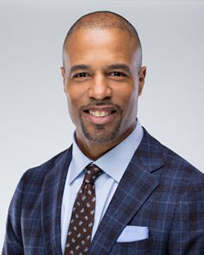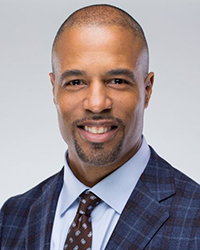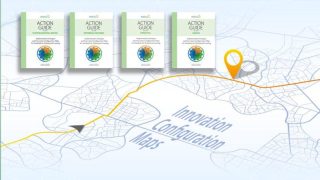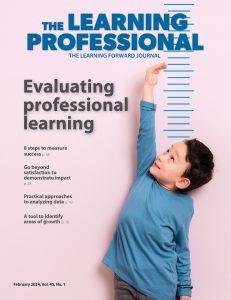I’d like to send a shout-out to New America and authors Melissa Tooley and Taylor White for their recently released report, Rethinking Relicensure: Promoting Professional Learning Through Teacher Licensure Renewal Policies. After exploring how states handle relicensure, particularly when it comes to creating systems that contribute to enhancing educators’ effectiveness through professional learning, the authors offer recommendations for policymakers.
One of their key arguments is that states must stop the practice of connecting relicensure to seat time in a whole host of learning experiences that may or may not contribute to educator professional growth.
As I reviewed the New America report, it quickly became clear to me that a state that has already adopted and implemented Learning Forward’s Standards for Professional Learning would have little trouble applying the authors’ recommendations. When over 40 international associations contributed to the revision of the standards in 2011, the connection between professional learning and relicensure/recertification was a key part of the conversation. Perhaps that’s why the standards provide such a clear road map for states engaged in reimagining these processes.
New America’s first recommendation reads: “Ensure teachers choose professional learning based on demonstrated needs for growth.” They argue that states should establish processes that ensure a “vast majority of professional learning a teacher engages in that counts toward recertification be clearly tied to an area where s/he or his/her students have demonstrated room for further growth.”
The Data standard of the Standards for Professional Learning reads: Professional learning that increases educator effectiveness and results for all students uses a variety of sources and types of student, educator, and system data to plan, assess, and evaluate professional learning. In both cases, the point is made that data on students’ learning needs should significantly inform educators’ learning experiences.
Student data include formal and informal assessments, classroom work, benchmark data, and other various formative and summative assessments. Other student data may include attendance, behavior, student perceptions, and post-graduation experiences.
As teachers and leaders notice gaps in their students’ learning or school-based experiences, they should ask themselves, “What is it that I need to learn in order to support the needs of my students?” And, of course, that educator learning, tied to students’ needs, should absolutely count toward relicensure.
Implicit in several of the New America recommendations is the belief that professional learning tied to relicensure should result in the implementation of new practices aligned to that learning. Again, I turn to the Standards for Professional Learning, this time focusing on the Implementation standard: Professional learning that increases educator effectiveness and results for all students applies research on change and sustains support for implementation of professional learning for long-term change.
The whole point of professional learning is changing practice. It would be professional learning malpractice for districts not to consider the kinds of supports educators need to implement what they have learned. Research and years of best practice tell us that it takes time to change and sustain new behaviors, and any state’s relicensure system should provide incentives to districts that link professional learning directly to support for implementation.
As you read the New America report, I urge you to explore the state examples. I’ve always thought Georgia’s new rules for relicensure were a model for other states, and I was pleased to see them highlighted in the report. When Georgia revised its certificate renewal process, it clearly moved away from professional learning seat time to a model that rewarded job-embedded professional learning.
Educators involved in professional learning communities (PLCs) that align their practices to the Learning Communities standard of the Standards for Professional Learning would have that time count toward relicensure. Given the Learning Communities standard’s focus on continuous improvement, collective responsibility, and goal alignment, this was a powerful step for Georgia. Now relicensure is not about seat time, it’s about engaging in the kind of professional learning that will positively impact educator practice and results for all students.
About the author
Frederick Brown is the deputy executive director of Learning Forward.








